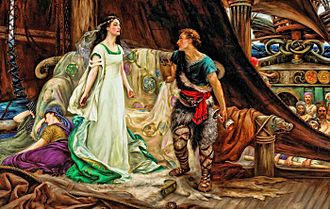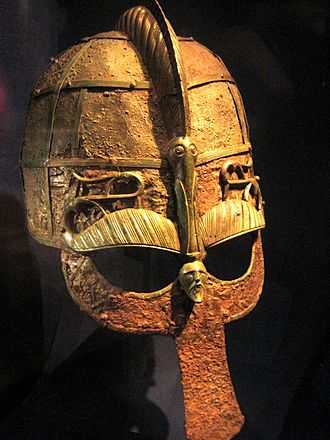Dennis Howard Green facts for kids
Quick facts for kids
Dennis Howard Green
|
|
|---|---|
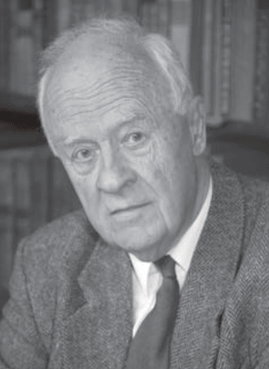 |
|
| Born | 26 June 1922 Bournemouth, England
|
| Died | 5 December 2008 (aged 86) Cambridge, England
|
| Alma mater | |
|
Notable work
|
|
| Spouse(s) |
Dorothy Warren
(m. 1947; div. 1972)Margaret Parry
(m. 1972; died 1997)Sarah Redpath
(m. 2001) |
| Children | 1 |
| Scientific career | |
| Institutions |
|
| Thesis | Konrads Trojanerkrieg und Gottfrieds Tristan. Vorstudien zum Gotischen Stil in der Dichtung |
| Doctoral advisor | Friedrich Ranke |
| Notable students |
|
Dennis Howard Green (born June 26, 1922 – died December 5, 2008) was an English scholar. He was a professor of German at the University of Cambridge. He focused on studying old German languages, literature from the Middle Ages, and the history of ancient Germanic peoples. Green was known as one of the best experts in these areas. He wrote many important books and articles about them.
Contents
Early Life and Studies
Dennis Howard Green was born in Bournemouth, England, on June 26, 1922. His parents were Herbert Maurice Green and Agnes Edith Flemming. When he was 18, just before World War II, Green started studying German at Trinity College, Cambridge.
War Service and Return to Studies
During the war, Green paused his studies to join the Royal Tank Regiment. He became a major and took part in the Normandy landings. It's thought he also worked for a special intelligence unit during this time. Once, he was even arrested for speaking Dutch with a German accent! In May 1945, he arranged a military trip to get rare medieval texts in exchange for army food supplies. The strong sense of order he learned in the military helped him in his later career.
After the war, Green went back to Cambridge. He earned his first degree there in 1946. He became very interested in old Germanic languages and literature from the Middle Ages. Since Germany was damaged by the war, he went to the University of Basel in Switzerland to get his Ph.D. (a high-level degree) in 1949. His teacher, Friedrich Ranke, was an expert on a famous medieval story called Tristan. Green's Ph.D. paper compared the writing styles of two medieval works: Konrad von Würzburg's Der trojanische Krieg and Gottfried von Strassburg's Tristan.
Starting His Career
From 1949 to 1950, Green was a lecturer (teacher) in German at the University of St Andrews. In 1949, he also became a Research Fellow at Trinity College, Cambridge, and stayed there for the rest of his life. He earned his Master's degree at Cambridge in 1950. From 1950 to 1966, he was a University Lecturer in German at Cambridge.
A Master of Languages
Green could speak many languages, not just English and German. He also knew Portuguese, Romanian, Chinese, and other modern languages. Plus, he was an expert in medieval languages and literature, both Germanic and Romance (like French or Spanish). This wide knowledge helped him use many different sources for his research.
From 1956 to 1979, Green led the Department of Other Languages at Cambridge. This department taught many languages, including Dutch, Portuguese, Hungarian, and Greek.
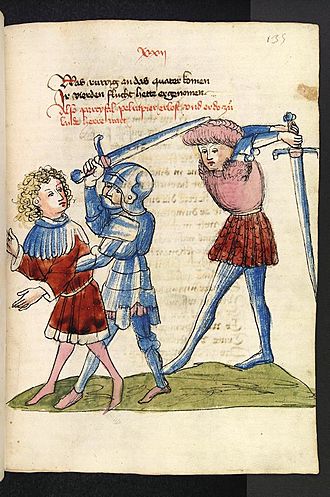
Important Early Works
In 1965, Green published The Carolingian Lord. This book looked at how people addressed powerful leaders in Old High German (an early form of German). He used many sources, including Old Saxon, Old English, and Latin. This book made him known around the world as an expert in medieval German studies. Because of the success of The Carolingian Lord, Green became the Chair of Modern Languages at Cambridge from 1966 to 1979.
Schröder Professor of German
In 1979, Green was chosen to be the Schröder Professor of German at Cambridge. This was a very important position. He managed his department strictly, but he was a brilliant teacher for students who could keep up with his fast pace. One of his well-known students was David Yeandle.
Even with his teaching duties, Green wrote a lot. In 1975, he wrote all 20 book reviews for a journal called Modern Language Review. This led to a new rule, jokingly called Lex Green, which limited how many reviews one person could publish each year.
Contributions to Medieval Literature
Green made big contributions to the study of Wolfram von Eschenbach's Parzival. He wrote Approaches to Wolfram von Eschenbach (1978) with his colleague Leslie Peter Johnson, and The art of recognition in Wolfram's Parzival (1982). Parzival was one of Green's favorite books, and he read it every year. His book Irony in the Medieval Romance (1979) looked at many medieval stories from different cultures. It is considered a groundbreaking work.
Green was one of the few medieval German scholars who knew both Medieval German and Medieval French literature very well. He loved to compare them. He also studied Medieval German literature by looking at all the Germanic languages and how Christianity spread among Germanic peoples. Unlike many other German scholars, Green always wrote his main books in English. This made his work available to many more readers.
After Retiring from Cambridge
Green retired from Cambridge in 1989. The same year, he became a Fellow of the British Academy, a group of leading scholars. He was one of only two medieval German scholars in this Academy and became an important figure there. His retirement actually led to him writing even more! His book Medieval Listening and Reading (1994) explored how people in Medieval Europe learned and shared stories, both by listening and reading.
In 1998, Green went back to his early interests with his book Language and history in the early Germanic world. This book explored important parts of early Germanic peoples' culture. It covered their religion, laws, family life, warfare, and kingship. He used information from twelve different Germanic languages. He also looked at how early Germanic peoples interacted with their non-Germanic neighbors and with Christianity. The book was written for both scholars and general readers and became very popular.
Green was a member of several academic groups, like the Modern Humanities Research Association. He was also a founding member of a group of scholars who met every year in San Marino to talk about Germanic peoples and languages. He edited a collection of essays from this group in 2003.
Green continued writing books and reviews even into his 80s. His later books, like The Beginnings of Medieval Romance: fact and fiction 1150–1220 (2002) and Women Readers in the Middle Ages (2007), looked at newer topics. These included how people read, listened, and the role of women in the Middle Ages.
Death and What He Left Behind
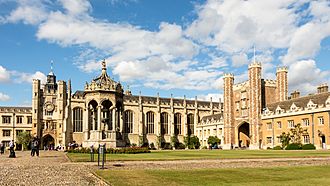
Dennis Howard Green passed away on December 5, 2008. His last book, Women and marriage in German medieval romance (2009), was published after his death. He had finished it just a few weeks before he died. When he passed away, he was also working on a book about who wrote medieval literature.
For over 50 years, Green was one of Cambridge's most respected scholars. He was seen as one of the last people to follow the "Cambridge tradition." This tradition, going back to the 1800s, meant that studying literature also involved a deep understanding of how languages changed over time. After Green's death, there were very few scholars in the United Kingdom who had his wide knowledge of Germanic languages and history. He played a big part in making Cambridge the best place in Britain to study Medieval German literature.
After he died, the D. H. Green Fund was set up at the University of Cambridge. This fund helps support the study of medieval German.
Personal Life
Green married Dorothy Warren in 1947. They had one daughter and later separated in 1972. On November 17, 1972, he married Margaret Parry, who passed away in 1997. In 2001, Green married Sarah Redpath. He loved to travel and went on many exciting journeys, including trips along the Silk Road and to Machu Picchu.
See Also
- Brian O. Murdoch
- Winfred P. Lehmann
- Hermann Reichert
- Otto Höfler
- Georg Baesecke
- Jan de Vries (philologist)
Images for kids
 | Madam C. J. Walker |
 | Janet Emerson Bashen |
 | Annie Turnbo Malone |
 | Maggie L. Walker |


